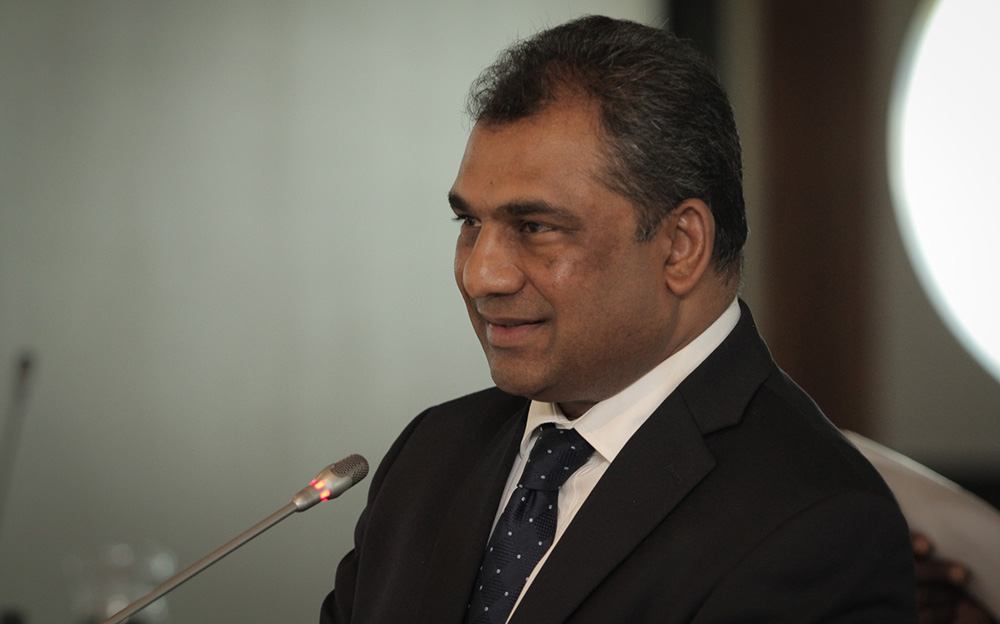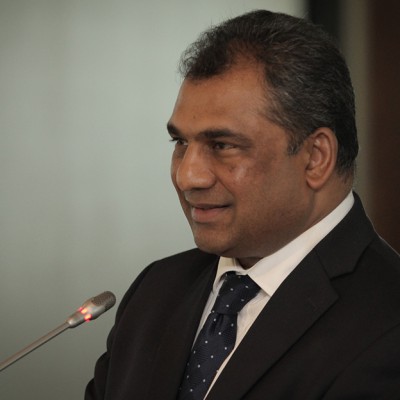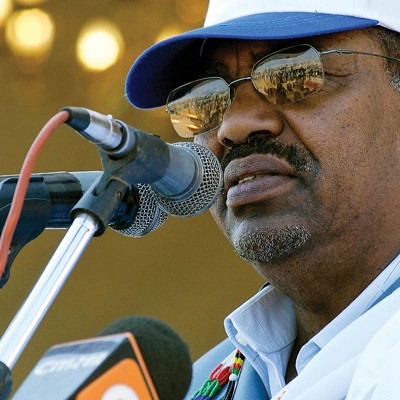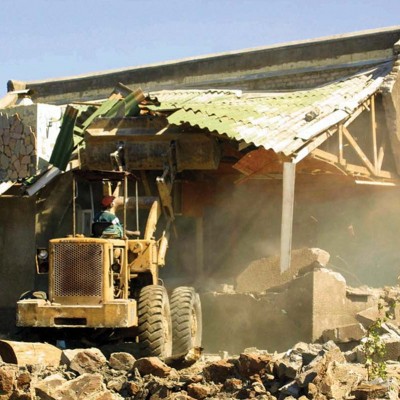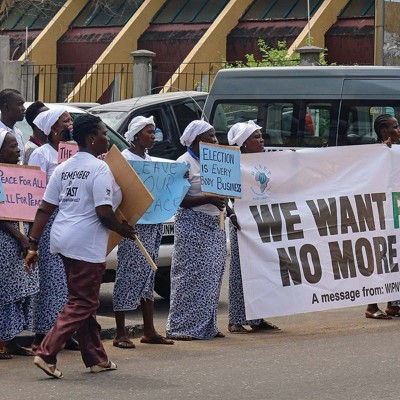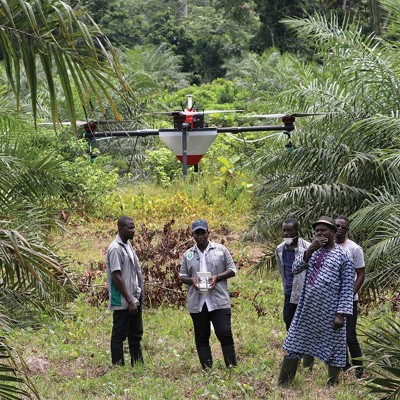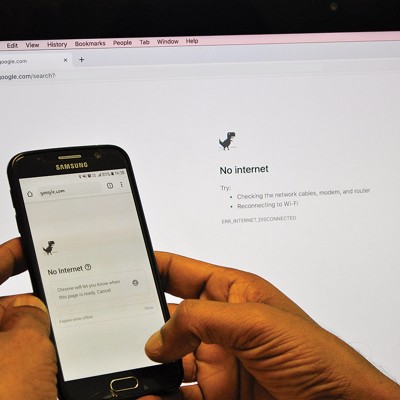“I think it’s a continuity of the system, since the heads are the heads of the old system that was rejected by the population. Moreover, it’s empty political programmes, so here we talk about things that are unachievable with our economy, it’s like selling dreams to little kids.”1 These are the words of a young Algerian protester who was one of thousands of protesters who marched every Friday for nine months to demand change. The protests forced the long-serving president of Algeria, Abdelaziz Bouteflika, to rescind a plan to contest for a fifth term before he was eventually forced to resign after 20 years in charge.
Similar street protests forced out the long-serving Sudanese president, Omar al-Bashir, from power early in 2019. In Guinea, since October 2019, around one million people protested in the capital city, Conakry, against the embattled 81-year-old president, Alpha Conde, suspected of wanting to run for a third term. It is now two years since the long-standing president of Zimbabwe, the late Robert Mugabe, was ousted from power by street protests.
It is important for us in Africa to understand what the factors are that drive these street protests, and what the possible outcomes and consequences are. There is no doubt that the root causes of these protests are the triple challenges of poverty, unemployment and inequality. These factors are exacerbated by rising food and fuel prices, which are usually the trigger that leads to street protests, which soon turn into political protests.
However, the triple challenges and rising food and fuel prices have been prevalent in Africa for several decades, so why are we now seeing such widespread and frequent protests across Africa? The main factors driving these phenomena are the sheer numbers of people who are now concentrated in urban areas and in possession of tools that give them unprecedented power to mobilise at a massive level in a very short time. Governments are not able to respond as fast, or to respond with minimum force. Consequently, casualties are high, and this has led to a cycle of conflict characterised by months of street protests.
The world, and Africa, is entering a dangerous era – one in which there will be little room to mediate between street protesters and their leaders to find new spaces for dialogue on building new social compacts that address the triple challenges. We are entering an era of growing authoritarianism in the name of stability. Right-wing leaders around the world, who thrive on exploiting the fears of their populations about a flood of migrants from Africa because of instability, will find allies among leaders in Africa who want to curb legitimate protests, and use the fact that instability will lead to a flood of refugees to other parts of the world. This unholy alliance will have negative consequences for Africa and will roll back the gains made in advancing democracy and human rights.
Chaotic, leaderless and misdirected street protests can be counterproductive and have negative consequences. It is also true that opportunistic forces from within and outside a country can hijack legitimate protests and exploit them for narrow ends. On the other hand, there is no doubt that many countries in Africa are failing to meet the basic needs of their people, and people are taking to the streets and engaging in legitimate protests to demand the basic services that they voted for.
Africa’s leaders will not solve the continent’s challenges by clamping down on legitimate protests. Africa’s challenges need confident and visionary leaders who are willing to put the interests of their people above self, group and political party. Africa needs a new national consciousness that is rooted in a pan-African consciousness. The year 2019 will be recorded as another year in which the people of Africa voted with their feet. Let 2020 be a year in which Africa’s leaders lead with their hearts and minds, and turn the dreams of our youth into reality!
Endnote
- Africanews (2019) ‘Young Algerians Call Out Dinosaur Elite Ahead of Divisive Polls’, Available at: https://www.africanews.com/2019/12/10/young-algerians-call-out-dinosaur-elite-ahead-of-divisive-polls/ [Accessed 11 December 2019].

